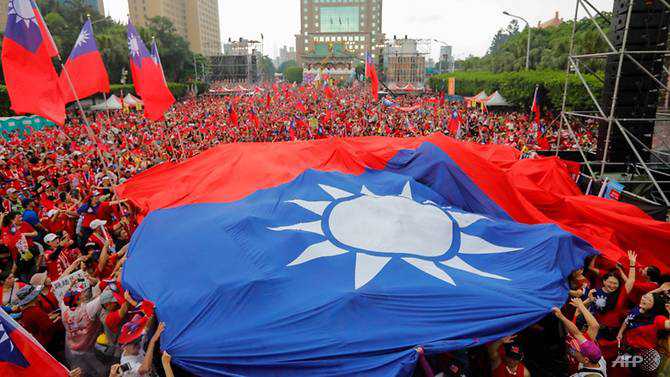Taiwan's main opposition party says struggling to pay salaries
07 December, 2019

Taiwan's main opposition party the Kuomintang said on Friday (Dec 6) it is struggling to pay staff a month away from presidential and parliamentary elections, due to an asset freeze previously put in place by the government investigating ill-gotten gains.
"In spite of this, the party centre is still trying its best to assist the presidential and legislative candidates with its limited resources," the Kuomintang said in a statement.
The Kuomintang said it was having to rely on loans to pay salaries, adding that it had yet to be able to pay December salaries, but that it had succeeded in finding people to support its presidential candidate Han Kuo-yu on the campaign trail.
The government committee handling the investigation into ill-gotten assets issued a statement on its Facebook page responding to what it said was "fake information".
It said the Kuomintang had income last year of NT$420 million (US$13.74 million) that had not been frozen.
"We only handle ill-gotten party assets. Political parties have always been free to use legal income such as party fees, political contributions, and party subsidies," it added.
The elections are set for Jan 11. The Kuomintang's Han is currently running far behind President Tsai Ing-wen in the polls.
The Kuomintang ruled China until it was forced to flee to Taiwan in 1949 after losing a civil war with the Communists. When it left, it took all of China's gold reserves and other assets, and it accumulated more when it got to Taiwan.
But under a law passed in 2016 after the Democratic Progressive Party (DPP) won power, most Kuomintang assets have been frozen pending an investigation by the cabinet-level Ill-gotten Party Assets Settlement Committee.
The Kuomintang has frequently complained, describing it as a witch hunt by the DPP, which supports the island's formal independence. China says Taiwan is merely one of its provinces. The Kuomintang favours close ties with China.
The DPP says the committee was established to right historical wrongs for assets the Kuomintang obtained before Taiwan democratised and to level the playing field for all parties. The lifting of martial law by the Kuomintang in 1987 was Taiwan's first major step towards democratisation.
Source:
TAG(s):
